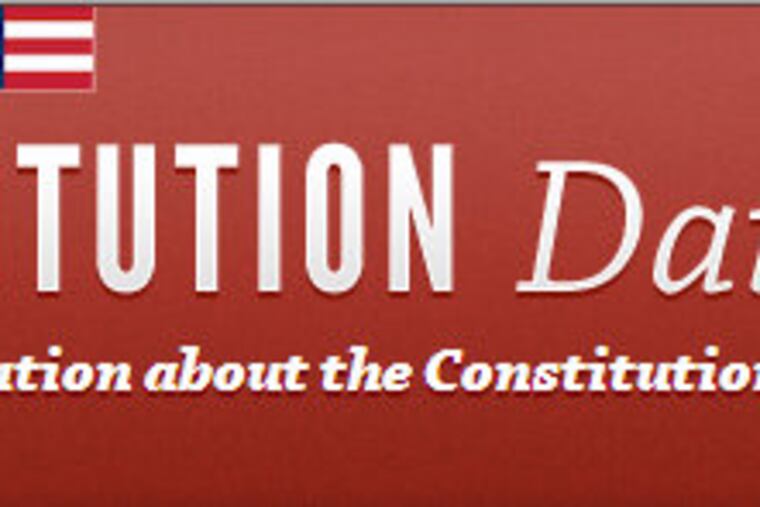Can newsgathering be prosecuted as a crime?

Lyle Denniston examines the argument, made by some, that reporters can be tried under the Espionage Act for seeking out the news about a classified program.
The statements at issue:
"The Justice Department's decision to treat routine news-gathering efforts as evidence of criminality is extremely troubling and corrodes time-honored understandings between the public and the government about the role of the free press."
– Bruce Brown, executive director of the Reporters Committee for Freedom of the Press, in a statement issued May 21 that was quoted in various news stories, regarding an FBI document filed in court to justify a search warrant of emails of Fox News reporter James Rosen. The document suggested that Rosen may have acted "at the very least, either as an aider, abettor and/or co-conspirator" with an official who allegedly leaked secret information to Rosen.
"To treat a reporter as a criminal for doing his job—seeking out information the government doesn't want made public—deprives Americans of the First Amendment freedom on which all other constitutional rights are based."
– Dana Milbank, Washington Post columnist, in an op-ed article on May 22, titled "Criminalizing journalism."
"If you're asking me whether the president believes that journalists should be prosecuted for doing their jobs, the answer is no."
– White House Press Secretary Jay Carney, in a briefing for reporters on May 21, quoted in various news stories.
We checked the Constitution and...
Long ago, America's press and government officials worked out a rough bargain under the First Amendment: The press would be free to publish information that the government would prefer to be withheld, but the government would retain the option of trying to punish those who leaked such information illegally.
The bargain has generally meant that reporters would not themselves be prosecuted as criminals for publishing unauthorized leaks, but that they could be investigated and, indeed, might even have to go to jail if they refused to identify their sources. It is an understanding that has left both sides not entirely trusting of each other.
What has stirred even greater distrust in recent days was the revelation that the FBI was treating a Fox News reporter as a potential subject of criminal prosecution, at least for purposes of a formal request to a judge for a search warrant in a sweeping investigation of the source of leaks to the reporter about North Korea's missile program.
Reporters, of course, have gone to jail for refusing to obey court orders that they had to disclose sources of stories that the government was investigating to find the source. But, so far as anyone can remember, no reporter has ever been charged with a crime for publishing a leaked bit of information, even of the most sensitive national security data. That is what the FBI affidavit in the case of James Rosen seemed to suggest, although the White House press secretary has now sought to head off such speculation.
Most of the recent investigations by the government in high-profile news leak cases have involved the publication of information about national defense or national security, and there is no doubt that some officials in the government believe that the Espionage Act, which makes it a federal crime to release classified data, also applies to the conduct of the press in publishing such data. But that is a view that has never been supported by a majority of the Supreme Court.
In fact, in the famous Pentagon Papers decision in 1971, two members of the court—Justices William O. Douglas and Hugo L. Black—said explicitly that the Espionage Act does not apply to the press in any way. Whether or not that represented a majority view then or since, it is an understanding that has generally led prosecutors not to try to bring criminal charges against reporters or publications that printed classified information.
But the Supreme Court has also made clear that the First Amendment does not give the press a constitutional right to print classified information. Less than a year after the Pentagon Papers ruling, the Supreme Court said in the case of Branzburg v. Hayes that “it has generally been held that the First Amendment does not guarantee the press a constitutional right of special access to information not available to the public generally.”
Elsewhere in that same decision, however, the court said it was not suggesting "that news gathering does not qualify for First Amendment protection," and it added that "without some protection for seeking out the news, freedom of the press could be eviscerated." The court elaborated on that somewhat, eight years later, in the case of Richmond Newspapers v. Virginia.
In that decision, the court ruled that the press shared with the public the right to sit in on government meetings or court sessions—so long as those traditionally had been opened to the public. The court, however, has never spelled out fully just what it meant by saying that the First Amendment provided "some protection for seeking out the news."
Clearly, the prospect of facing criminal charges for "seeking out the news" about some classified government program or activity would be seen by the press as a threat to its news-gathering operations.
Whether such a threat ever will arise, no one can know at this point. On that, the press may have to wait until, perhaps some day, an adventuresome prosecutor decides that a reporter did act as a "co-conspirator" or as an "aider or abettor" to a leaker of such information, and attempted to pursue a criminal charge along those lines. That is not a day, however, to which the press ought to look forward eagerly; the outcome would not be predictable, whatever past experience has shown.
Lyle Denniston is advisor on constitutional literacy for the National Constitution Center. He has reported on the Supreme Court for 55 years, currently covering it for SCOTUSblog, an online clearinghouse of information about the Supreme Court's work.